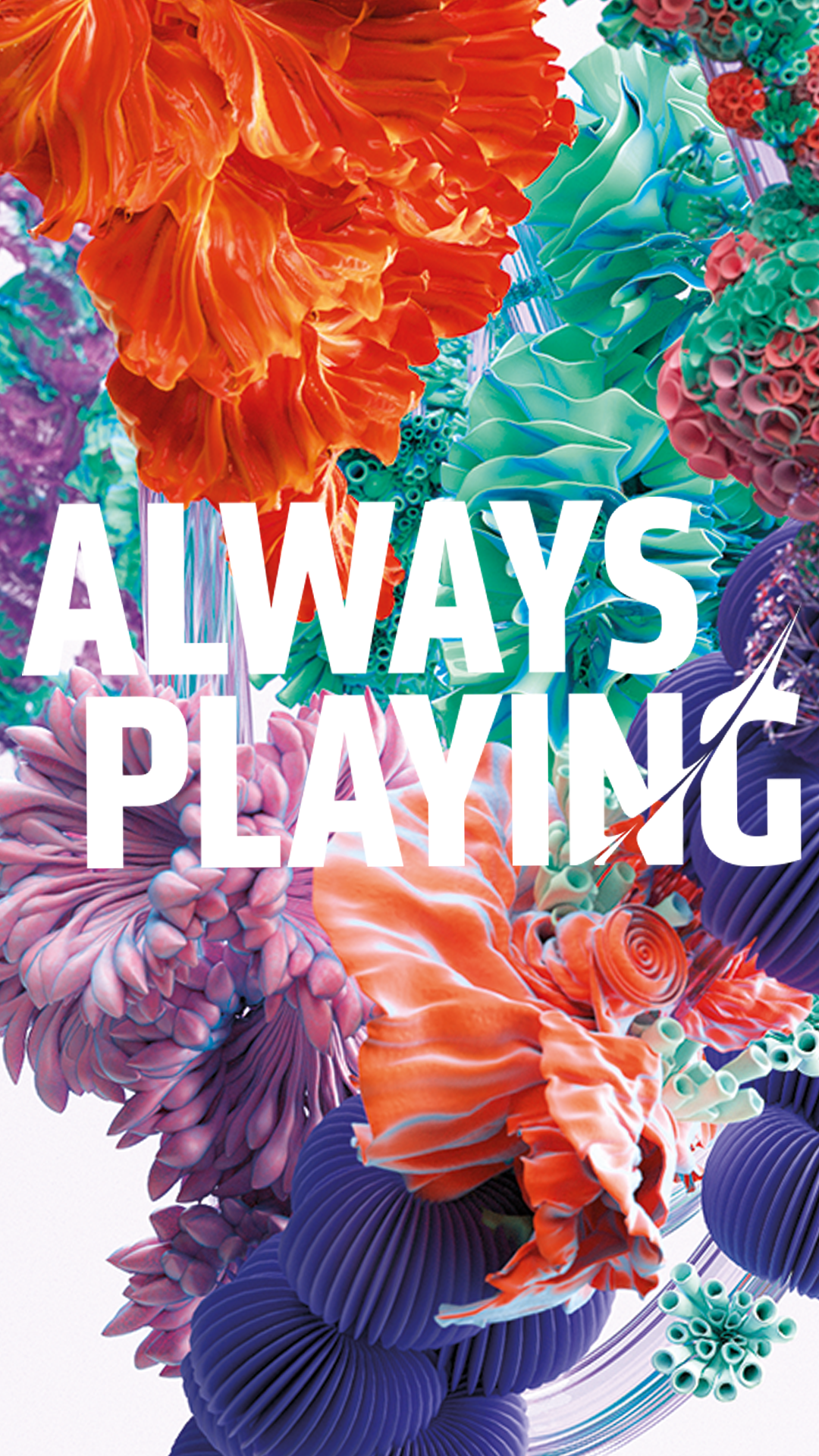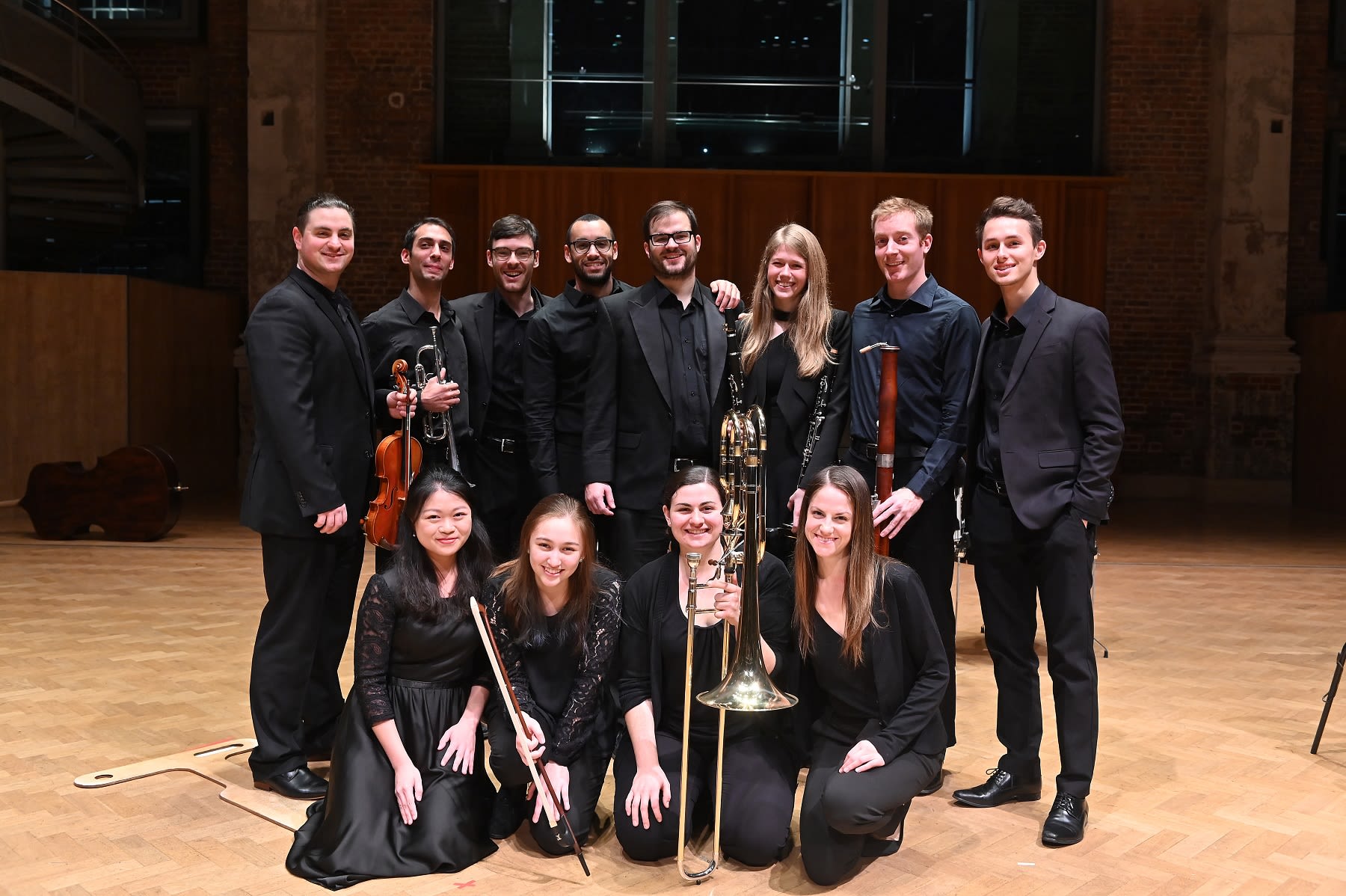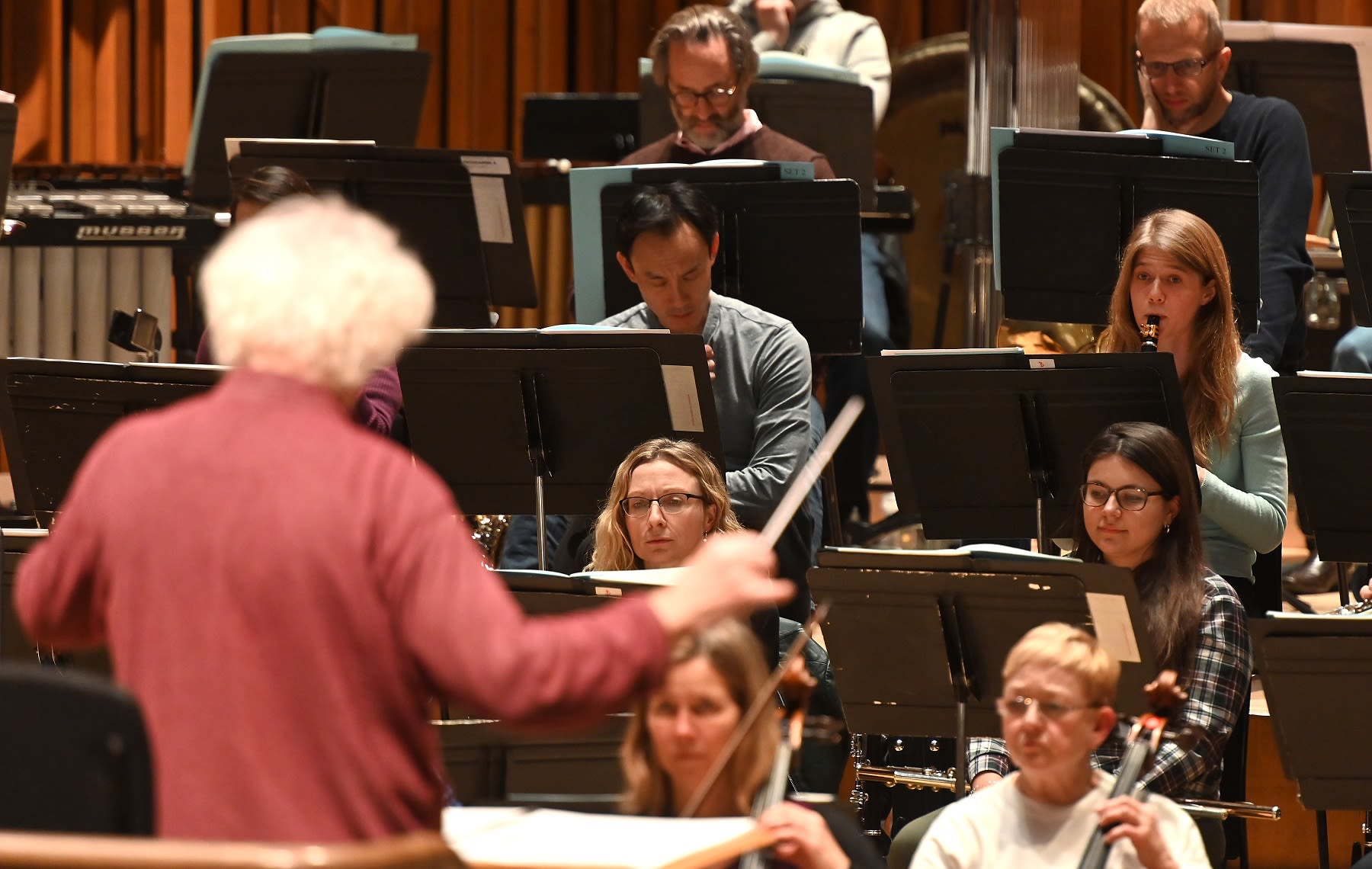London Symphony Orchestra
concert for
Music Academy of the West
July 2020
Online concert

Thank you for joining the LSO and Music Academy of the West for today's online performance.
Our partners at Music Academy of the West have been incredibly resourceful in setting up an online programme so swiftly when the pandemic prevented us all meeting in person, and we are delighted to share these special online performances recorded in London at our venue LSO St Luke's until we can meet again with all the fellows, friends and supporters.
We are grateful to the lead sponsors of this important London Symphony Orchestra partnership, Linda and Michael Keston and Mary Lynn and Warren Staley, with additional support which has been provided in remembrance of Léni Fé Bland.
Whether in the concert hall or online, it is a pleasure to invite you to join us, and I hope you enjoy today's eclectic programme of music.

Kathryn McDowell CBE DL; Managing Director
Kathryn McDowell CBE DL; Managing Director
The LSO & Music Academy of the West Partnership
The partnership between Music Academy of the West and the London Symphony Orchestra, launched in summer 2018, is based at the Academy's annual Summer School and Festival in Santa Barbara, California, and at the Barbican and LSO St Luke’s in London. This year's trip to London for the Keston MAX fellows was unfortunately postponed due to the COVID-19 pandemic, and the planned residency in Santa Barbara this summer moved online as part of the reimagined Music Academy Remote Learning Institute.

Ordinarily, the partnership involves a yearly residency of LSO's principal players at the Academy during their eight-week Festival, to coach and mentor Academy fellows with the full Orchestra performing concerts every other year, including side-by-side with the Academy Festival Orchestra.
Twelve of the 95 fellows are selected via audition to travel to London the following year for ten days of intensive training with the London Symphony Orchestra and Music Director Sir Simon Rattle. They experience a week in the life of an LSO musician, take part in rehearsals, performances, and mock auditions; receive lessons and perform chamber music with LSO players, providing an invaluable insight into the Orchestra.

To find out more about the partnership and what we've been up to, visit lso.co.uk
Keep reading to find programme notes and artist biographies...

Steve Reich (b. 1936)
Quartet for 2 pianos
and 2 vibraphones
2013
LSO Percussion Ensemble
The American composer Steve Reich says that the quartet combination of keyboards and percussion has played a central role in many of his larger pieces, but this piece, composed in 2013, was his first for the stand-alone combination of two vibraphones and two pianos. It's dedicated to the British percussionist Colin Currie, who gave the premiere with the Colin Currie Ensemble (including LSO percussionist Sam Walton) at the Southbank Centre in December 2014. Reich says that the piece, which demands a high level of ensemble virtuosity, is one of the most complex he has composed, as 'it frequently changes key and often breaks off continuity to pause or take up new material'. Upbeat, jazz-influenced outer sections enclose a more reflective, nocturnal core.

Steve Reich
Steve Reich
Poulenc (1899 – 1963)
Sonata for oboe and piano
1925
1. Elégie (Paisiblement, sans presser)
2. Scherzo (Très animé)
3. Déploration (Très calme)
Juliana Koch oboe
Simon Lepper piano
This is the last of three solo wind sonatas which Poulenc composed in the last decade of his life, beginning with the popular Flute Sonata (1956) and ending with sonatas for clarinet and oboe (both 1962). The Oboe Sonata is dedicated to the memory of Poulenc’s friend Sergei Prokofiev, who had died nine years earlier. It opens with a resigned lament, marked 'Peacefully, not fast', in which a high D on the oboe introduces a four-note turning phrase which inflects the gentle first theme over steadily pulsing harmony. Two further themes are explored before the opening elegy returns. The animated central scherzo pays homage to a form much favoured by Prokofiev, while the calm and sorrowful final Déploration – a poetic and musical lament for the dead favoured by French composers since the Renaissance – explores the oboe's extremes of range and dynamics, requiring precise control. Probably Poulenc's final composition, this movement stands as his own epitaph.

Francis Poulenc
Francis Poulenc
Dutilleux (1916 – 2013)
Three stanzas on the name Sacher, for solo cello
1982
1. Un poco indeciso
2. Andante sostenuto
3. Vivace
Rebecca Gilliver cello
In 1976 the French composer Henri Dutilleux was one of 12 international composers commissioned by Mstislav Rostropovich to write a short cello piece in honour of the 70th birthday of the conductor Paul Sacher, the great international champion of contemporary music and founder of the Basle Chamber Orchestra. Rostropovich stipulated that the homages should be based on musical cryptograms derived from the letters of Sacher's name. Dutilleux accepted the commission with alacrity, as the cello was one of his favourite instruments. In 1982 he added two more movements – respectively slow and fast – to his original contribution, forming a short suite of three 'strophes' or stanzas, which was premiered in Basle in April that year by Rostropovich.
Dutilleux requires the cellist to tune the two lowest strings differently, to add extra weight and depth to the instrument's lowest register. The movements, which require a range of virtuosic string-playing techniques, from extensive double-stopping, pizzicato and harmonics to striking the strings with the wood of the bow, are constructed not only on the German musical equivalents of Sacher's name – E-flat (=S), A, C, B (=H), E, D (=R, or re in tonic sol-fa) – but according to intrinsic elements of the poetic stanza, featuring the sense of rhyme and return, with contrapuntal passages mirroring each other, and incisive phrases often concluding with brief, cadenza-like passages. The final bars of the original strophe incorporate a ghostly quotation from one of Sacher's most famous commissions for the Basle Chamber Orchestra, Bartók's Music for Strings, Percussion and Celeste.

Henri Dutilleux
Henri Dutilleux
The remainder of today's programme is based around works for brass quintet, played by members of the
LSO Brass Ensemble.
Lutosławski (1913 –1994)
Mini Overture for brass quintet
1982
This entertaining piece also dates from 1982, and belongs to a series of chamber works that Lutosławski composed in the period following his own Sacher Variation for solo cello, another contribution to Rostropovich's homage to the Swiss conductor. The Mini Overture was also a birthday tribute – for Ursula Jones, wife of the leader of the Philip Jones Brass Ensemble, which gave the piece its premiere in Lucerne in March 1982. Lutosławski called it 'a small caricature of an overture', and apparently intended it to form the first movement of a suite. It resembles a 'grotesque' scherzo, played in three continuous sections creating a vaguely sonata-form outline. The idiom is largely neo-classical pastiche, and the musical material is based on two twelve-note rows, integrated with a light touch.

Roman Lutosławski
Roman Lutosławski
JS Bach (1685 – 1750),
arr Dudley Bright
Goldberg Variations, for brass quintet
1741
Bach's Goldberg Variations, a colossal set of 30 variations on a simple sarabande-like theme, written during Bach's Leipzig years and 'intended to delight the souls of music-lovers', was the largest single piece of keyboard music published in the 18th century. Dudley Bright, the LSO's former Principal Trombone, has arranged the grave and beautiful Aria and the eight variations performed today (Nos 1, 2, 4, 16, 7, 21, 24 and 20) to produce a satisfying suite of contrasting movements. He says that he has drawn inspiration from Canadian pianist Glenn Gould's iconic early recording of the Variations to produce contrasts of phrasing, dynamics and tone colour. Variation 1 is lively, in the style of a polonaise, while Variation 2 is a simple piece in three-part counterpoint over a constantly moving bass. Variations 4 and 7 are in Baroque dance styles, the first a passepied, the second a gigue-like 'Canary'. Variation 16 is a miniature French overture with an opening slow section featuring dotted rhythms followed by a faster fugue. No 21, in G minor, is in the style of a lament over a chromatic descending bass, No 24 is a canon at the octave, while Variation 20 is a lively and brilliant toccata.

JS Bach
JS Bach
Ewald (1860 – 1935)
Brass Quintet No 1 in B flat minor Op 5
1890
1. Moderato – Più mosso
2. Adagio non troppo lento – Allegro vivace – Tempo I: Adagio
3. Allegro moderato
Victor Ewald, like many of his Russian contemporaries, was not a professional musician. Although he trained at the St Petersburg Conservatory from the age of 12, learning harmony and composition as well as cornet, piano, horn and cello, he became a distinguished civil engineer. At the same time he worked alongside members of the so-called 'Mighty Handful' – all amateur composers who pursued a variety of other professions. Ewald is chiefly remembered today for four brass quintets, originally scored for two cornets (now played on trumpets), alto horn (now French horn), tenor horn (now trombone), and tuba, which Ewald originally played himself. The first of these, which was composed around 1890 and published over 20 years later, was actually the second to be written. Its three short movements are predominantly lyrical, tinged with Russian Romantic melancholy.

Victor Ewald
Victor Ewald
Now a shift in style and mood, moving from the Old World to the New. First come two virtuosic party-pieces, respectively for trumpet and trombone.
Traditional Mexican,
arr Canadian Brass
La Virgen de la Macarena
La Virgen de la Macarena is a Mexican folksong in which a lovesick girl prays to the Virgin. In this Canadian Brass arrangement, Philip Cobb tackles the dazzling arabesques and cadenzas for solo trumpet that ornament the plaintive strophes of the song, underpinned by a lugubrious bass line from the depths of the tuba.
Pryor (1869 – 1942), arr Amos Miller
Blue Bells
The astonishing virtuosity of the American trombonist and bandleader Arthur Pryor earned him the sobriquet 'the Paganini of the trombone'. Some disbelieving German listeners once took his instrument apart, convinced it must conceal a trick mechanism. This arrangement of Pryor’s most famous showpiece, the folksong Blue Bells of Scotland, was made by trombonist Amos Miller for an Onyx Brass tour of Scotland. He describes these mind-blowingly virtuosic variations – played here by the LSO's brilliant Principal Trombone, Peter Moore – as 'a thoroughly charming examination of all aspects of trombone technique'.

Arthur Pryor
Arthur Pryor
Enrique Crespo (b.1941)
Suite Americana
1977
1. Ragtime
2. Bossa Nova
3. Vals Peruano
4. Son de México
Enrique Crespo is also a virtuoso trombonist, both in the classical and jazz fields. Born in Montevideo, Uruguay, he played for many years in German symphony orchestras and founded the German Brass Ensemble. His Suite Americana for brass quintet, of which four of the five movements are being played today, is a set of colourful musical impressions from the Americas. It opens with Ragtime, a homage to the syncopated style developed by black musicians in the American Deep South. Then comes Bossa Nova, a Brazilian samba refined through the influence of jazz, Vals Peruana – a Peruvian waltz, and finally Son de México, which combines two Mexican dances, a slow Huapango from the Gulf of Mexico region, and a faster dance from the central Jalisco region, featuring brilliant trumpets.

Enrique Crespo
Enrique Crespo
Programme notes by Wendy Thompson

Today's peformers:
LSO Percussion Ensemble
Distinguished orchestral players with enviable reputations in their own right, the LSO Percussion Ensemble is made up of members of the London Symphony Orchestra's renowned percussion section. The ensemble enjoys an international following, and in 2018 embarked on their first tour of Japan.
The group's first release on the LSO Live label featured music by Steve Reich, including Sextet, Clapping Music and Music for pieces of wood, the last of which was licensed by AMC for use in Season 8 of The Walking Dead. The Gramophone review of the album commented that 'the LSO percussion's performance of Sextet builds up in energy and momentum to a quite thrilling climax', and HR Audio remarked, 'The performances and the recorded sound are so outstanding … unreservedly recommended'.
In March 2020, the group released Quartet Quintet, an album of music centred around the world premiere of Quintet, a five movement suite by British composer Gwilym Simcock, alongside works by Steve Reich, Chick Corea, Makoto Ozone & Joe Locke.

Juliana Koch oboe
Before joining the London Symphony Orchestra in 2018, Juliana played as principal oboe at the Royal Danish Opera in Copenhagen and at Teatro alla Scala in Milan – and further became a laureate of the ARD international Music Competition 2017. Since then she has been an in-demand soloist, debuting at the Berlin Philharmonie in 2019 with the Strauss Oboe Concerto and the Deutsches Symphonie-Orchester Berlin. Other solo engagements include appearances with the Symphonieorchester des Bayerischen Rundfunks, the Estonian National Symphony Orchestra and the Hungarian National Philharmonic among others.
Recitals and chamber music performances brought her to Musica Viva’s Huntintgon Estate Music Festival in Australia, Lucerne Festival, Bachfest Leipzig, the Bamberg Konzerthalle and Deutschlandfunk Köln. A sought after guest principal, Juliana has appeared with the Symphonieorchester des Bayerischen Rundfunks, the Philadelphia Orchestra, the Chamber Orchestra of Europe, and the Los Angeles Philharmonic Orchestra. Juliana studied with François Leleux in Munich and Fabian Menzel in Frankfurt, she plays a Marigaux M2 oboe.

Rebecca Gilliver cello
Rebecca Gilliver is principal cellist of the London Symphony Orchestra, originally joining the LSO as co-principal in 2001 and becoming principal in 2009. Rebecca has also played as guest principal all over the world with ensembles including the Australian Chamber Orchestra, New Sinfonietta Amsterdam and the World Orchestra for Peace. Having studied at the Yehudi Menuhin School with Melissa
Phelps and William Pleeth, she then attended the Royal Northern College of Music with Moray Welsh and Ralph Kirshbaum.
Success in national and international competitions has led Rebecca to critically acclaimed recitals at the Wigmore Hall and Carnegie Hall, and solo performances with ensembles such as the Hallé Orchestra and London Mozart Players. As a chamber musician, Rebecca has played and recorded with major artists such as the Nash Ensemble. She is a professor at the Guildhall School of Music and Drama and has given masterclasses at the Royal Academy and Royal College of Music amongst others. Rebecca also runs her own cello course, The Dorset Cello Classes, and is a regular coach at Alpinekammermusik and the Aboyne Cello Festival.

LSO Brass Ensemble
The heroes of the LSO brass section take centre stage in a line-up pioneered by the renowned Philip Jones Brass Ensemble and its successor London Brass, whose ranks included legendary London Symphony Orchestra players such as Denis Wick, Eric Crees, Rod Franks and Maurice Murphy. The London Symphony Orchestra brass section today incorporates the top British players of a new generation, as well as some of the leading orchestral brass players in the world.
The group have enjoyed tours to Japan and have performed in concerts alongside LSO tours in 2015 and 2018.


The LSO was established in 1904 and has a unique ethos. As a musical collective, it is built on artistic ownership and partnership. With an inimitable signature sound, the LSO's mission is to bring the greatest music to the greatest number of people.
The LSO has been the only Resident Orchestra at the Barbican Centre in the City of London since it opened in 1982, giving 70 symphonic concerts there every year. The Orchestra works with a family of artists that includes some of the world’s greatest conductors – Sir Simon Rattle as Music Director, Principal Guest Conductors Gianandrea Noseda and François-Xavier Roth, and Michael Tilson Thomas as Conductor Laureate.
Through LSO Discovery, it is a pioneer of music education, offering musical experiences to 60,000 people every year at its music education centre LSO St Luke's on Old Street, across East London and further afield.
The LSO strives to embrace new digital technologies in order to broaden its reach, and with the formation of its own record label LSO Live in 1999 it pioneered a revolution in recording live orchestral music. With a discography spanning many genres and including some of the most iconic recordings ever made the LSO is now the most recorded and listened to orchestra in the world, regularly reaching over 3,500,000 people worldwide each month on Spotify and beyond. The Orchestra continues to innovate through partnerships with market-leading tech companies, as well as initiatives such as LSO Play.
Image: Ranald Mackechnie

Thank you for watching.
Stay updated:
- Follow us on Instagram, Facebook and Twitter
- Sign up to our email list to be the first to hear about our new programme
- Subscribe to our YouTube channel
